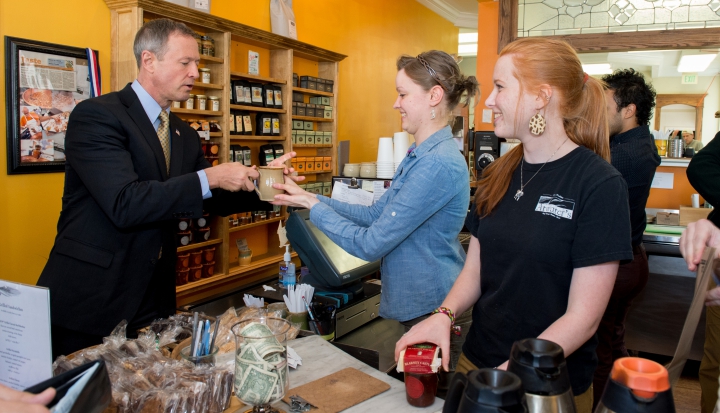Although efforts to raise the national minimum wage don’t seem to be making much headway, a growing number of cities are hiking up their wages, with Seattle’s city council voting to establish the country’s highest minimum wage at $15/hour. But there is already a significant outcry, as small business owners are worried about what higher wages will mean for them and a legal challenge against the Seattle increase is already underway.
The latest round of debate continues a longstanding argument over whether a higher minimum wage hurts the economy more than it helps. A recent report from the Congressional Budget Office estimates that a national increase to $10.10 per hour would mean higher wages for about 16.5 million Americans totaling an additional $31 billion in earnings. But it would also mean that jobs would be lost as employers would be forced to cut back, resulting in a 0.3 percent decrease in total employment (or a loss of an estimated 500,000 jobs).
If nothing else, the latest city-wide increases will give economists more data to study. That’s the hope for economists like Michael Reich of the University of California, Berkeley’s Institute for Research on Labor and Employment. In looking at the city of San Jose, California, over the one year period since the city upped its minimum wage to $10.15 an hour, Reich finds that the impact isn’t nearly as bad as most employers feared. On average, San Jose restaurants saw an increase in operating costs of 0.25 percent, with price increases for customers of just under 1 percent.
Some small businesses in San Jose have struggled, but others have found added benefits like decreased employee turnover, which means less time spent on hiring and training new employees. One local pizzaria owner who at first fought the increase has now actually seen his business grow, and he’s even looking at opening more locations.
Undoubtedly some small businesses will be hurt by having to pay their workers higher wages, and some may have to cut jobs or even close their doors. And yes, that might mean fewer available jobs in the short term and more people out of work, which is never a positive. But only keeping people employed by paying them a wage that guarantees they will live in poverty isn't a positive either.
Economists can continue to debate the impact that wage increases will have on businesses, but Catholic teaching is more concerned with the dignity of work and protecting the basic rights of workers, including the right to a just wage. From a Catholic perspective, the important question is not whether a business might suffer from having to pay its workers a higher wage. The real question is whether a business that can only survive by denying its workers a fair, living wage is truly a just business model.
Flickr image of minimum wage rally at Atwater's Bakery in Catonsville, Maryland by Jay Baker cc courtesy of Maryland GovPics










